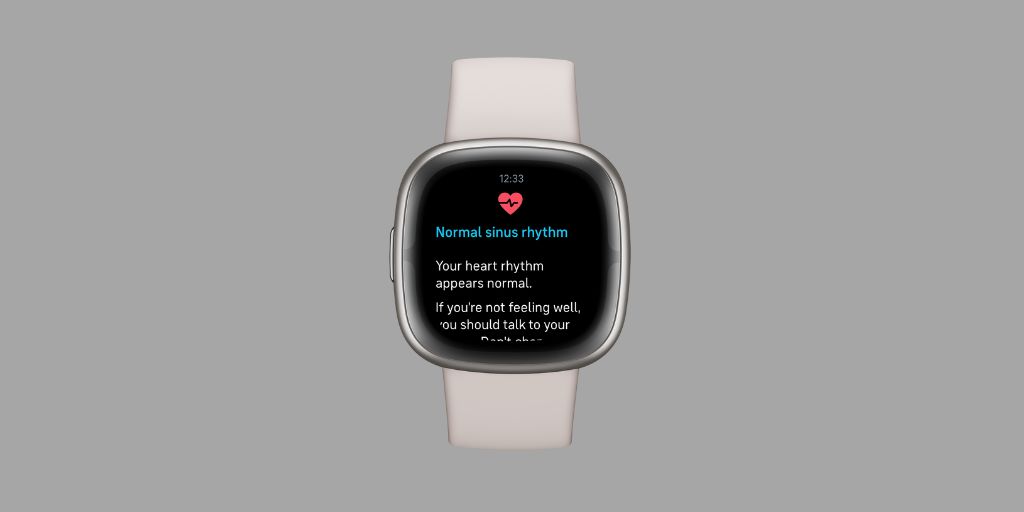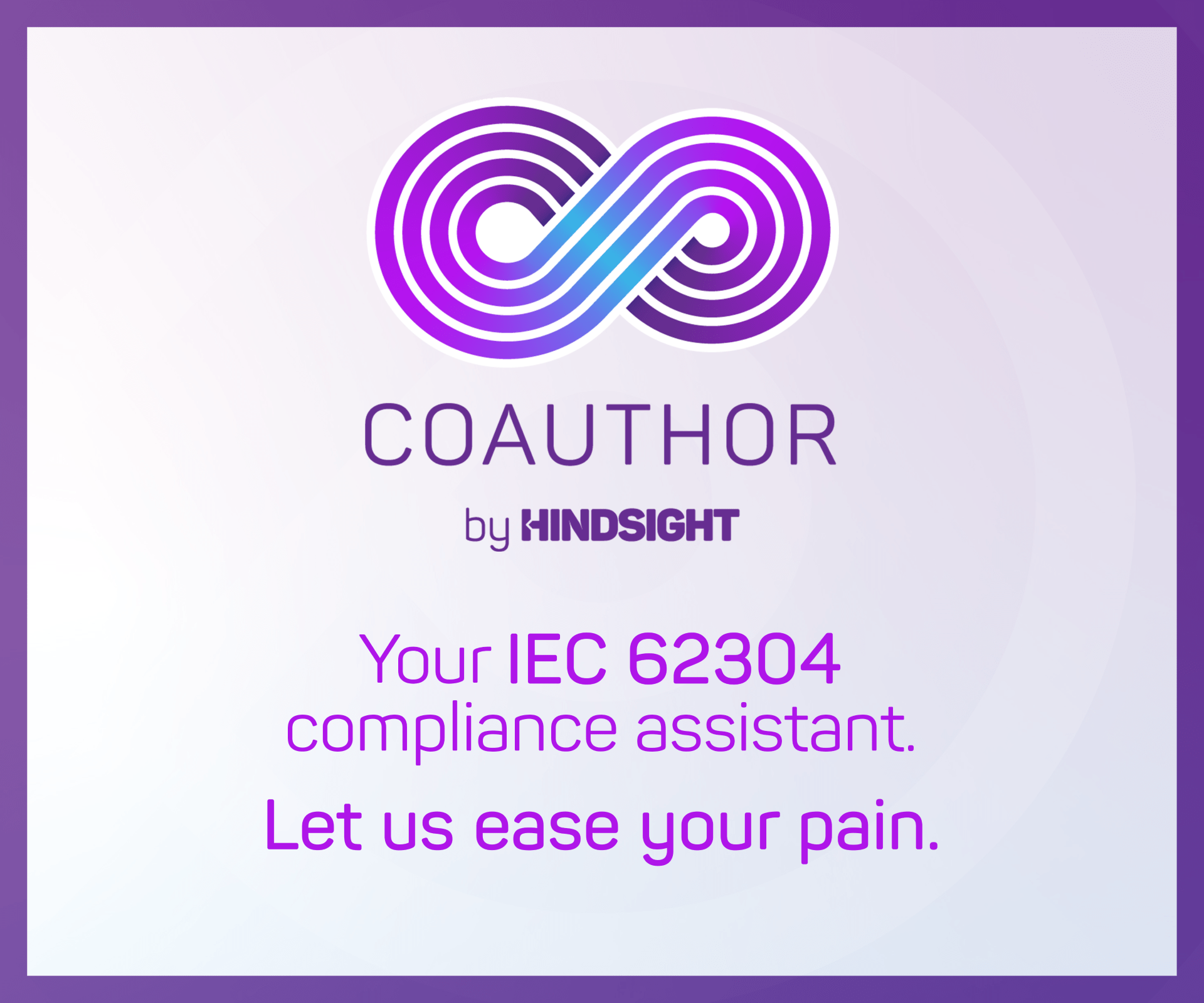
Atrial fibrillation (AFib) is the most common heart condition in the UK, affecting around 1.4 million people, and can significantly increase the risk of stroke.[1],[2] New Irregular Heart Rhythm Notifications feature that can help detect atrial fibrillation* has received CE marking and is now available for Fitbit users in the UK.**
Fitbit trackers or smartwatches with the new Irregular Heart Rhythm Notifications feature can assess the user’s heart rhythm in the background while they are still or sleeping to check for heart rhythm irregularities that may be signs of AFib. This is done by detecting changes in the volume of blood flowing through the wrist with a PPG sensor. If multiple readings show signs of an irregular rhythm, users are notified through the Fitbit app.
The feature was validated in the 2020 Fitbit Heart Study, which evaluated the Fitbit algorithm’s ability to screen for potential AFib at scale.[3] 455,699 participants were enrolled over five months without a previous diagnosis of the condition.3 In 98% of cases where a positive detection of AFib occurred, the results matched those of an ECG read by an experienced physician.***3 The PPG algorithm is designed to avoid false positives that may unnecessarily worry users or place a burden on healthcare systems, and received a low false positive rate during the study.3 The Fitbit Irregular Heart Rhythm Notifications feature can therefore help users to have proactive conversations about their heart health with their doctor, or to seek further assessment before other significant medical events, such as stroke, occur.
Adults over 40 have a one in four chance of developing AFib in their lifetime.[4] However, this figure is likely to be even higher as AFib can be symptomless and intermittent.2 This means many people are unaware they have the condition and remain undiagnosed.[5] AFib is more common in older people and those with other medical conditions, such as high blood pressure or type 2 diabetes.2 However, it can also affect people with no medical conditions, including those who are very physically fit.2
“Many adults in the UK may be living with undiagnosed AFib,” says Dr Shouvik Haldar, Consultant Cardiologist and Electrophysiologist at Harefield Hospital. “Having access to their personal heart health metrics can empower people to get medical advice if needed and hopefully inspire lifestyle behaviours. This could help reduce their chances of potentially serious health consequences if they do have AFib. Wearable technology to detect AFib is truly disruptive as it challenges the traditional hospital grade ECG detection tools for AFib detection – patients now come to the hospital with heart rhythm data. The potential capabilities of wearable technology are immense, with much more innovation to come.”
“Fitbit pioneered the use of heart rate tracking on the wrist with PurePulse technology. Today, our focus is on making the invisible visible by offering more information about the body , including the heart, to help people take better control of their health,” says Dr Tony Faranesh, Fitbit Research Scientist. “Recent advances in heart rate tracking technology mean some wearables can now assess for signs of AFib in an accessible, convenient and non-intrusive way.”
Users can also monitor their heart health with a compatible ECG app on certain Fitbit devices.**** This allows them to check their heart rhythm for AFib on demand, including if they notice any unusual symptoms. After assessing their heart rhythm for 30 seconds, users receive a reading from the ECG app showing if their heart rhythm appears normal, shows signs of AFib, or if the assessment was inconclusive. This reading can be used to support conversations with healthcare providers if there are any concerns.
Click here for more detailed information on this new feature and the technology behind it.
*The Irregular Heart Rhythm Notifications feature isn’t designed to detect heart attack, blood clots, stroke, or other heart conditions. The Irregular Rhythm Notifications feature is not intended for use by people under 22 years old or with known atrial fibrillation. Results may not be accurate in people who take medication or substances that affect heart rate or blood flow. Only a healthcare professional can diagnose AFib and smartwatch users are advised not to change medication or any health regimen without talking to their healthcare professional.
**Feature not available on all Fitbit devices. The feature is currently available on Charge 5, Charge 4, Luxe, Sense, Sense 2, Versa 2, Versa 3, Versa 4, Inspire 3 and Inspire 2.
***Data presented at the 2021 American Heart Association Scientific Sessions found that the Fitbit PPG detections correctly identified AFib episodes 98% of the time, as confirmed by ECG patch monitors.
****The ECG app is only available in select countries and with select Fitbit products; not intended for use by people under 22 years old.
[1] NICE. Available at: https://www.nice.org.uk/sharedlearning/safe-and-effective-management-of-stroke-prevention-in-atrial-fibrillation. Accessed August 2022
[2] NHS. Atrial fibrillation. 2021. Available at: https://www.nhs.uk/conditions/atrial-fibrillation/. Accessed August 2022.
[3] Lubitz SA et al. Rationale and design of a large population study to validate software for the assessment of atrial fibrillation from data acquired by a consumer tracker or smartwatch: The Fitbit heart study. Am Heart J. 2021 Aug;238:16-26.
[4] Lloyd-Jones DM, et al. “Lifetime Risk for Development of Atrial Fibrillation.” American Heart Association, 2004.
[5] Patel NJ, Atti V, Mitrani RD, et al. Global rising trends of atrial fibrillation: a major public health concern. Heart. 2018;104:1989-1990.













